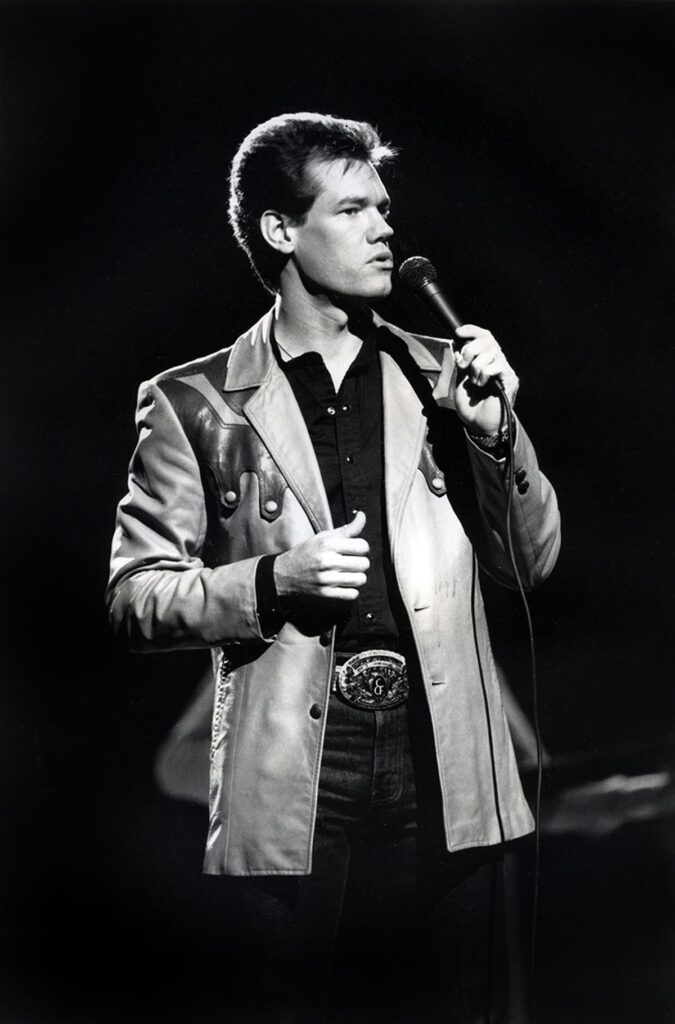A Tribute to Faith and Ancestral Legacy, “He Walked on Water” Embodies the Transcendent Power of Memory and Reverence.

When Randy Travis released “He Walked on Water” as part of his critically acclaimed album No Holdin’ Back in 1989, it was a moment that captured the imaginations of listeners, drawing them into a narrative rich with familial reverence and the poignant beauty of childhood wonder. Although the song didn’t ascend to the top of the charts, it lingered in the hearts of many as a testament to the enduring power of storytelling in country music—a genre that often finds its greatest strength in the tales it weaves about ordinary lives filled with extraordinary emotions.
“He Walked on Water” is a song steeped in nostalgia and respect, echoing the sacred relationship between a young boy and his great-grandfather. Written by Allen Shamblin, this evocative composition explores themes of hero worship, familial bonds, and the inevitable passage of time. The lyrics paint a vivid portrait of an old man whose life is revered by his great-grandson as legendary. Through the eyes of a child, the patriarch becomes larger than life, imbued with mythic qualities that elevate him to almost divine status.
This song resonates with listeners not merely through its lyrical content but through its soulful delivery. Randy Travis’s deep, resonant voice acts as a conduit for emotion, drawing forth memories buried in the hearts of those who have known such familial figures—pillars of strength and wisdom around whom family lore revolves. The gentle yet firm cadence in Travis’s voice mirrors the unwavering belief children have in their elders’ stories, even when such stories are embroidered with fanciful embellishments.
The creative genesis of “He Walked on Water” lies in its ability to bridge generations. Shamblin crafts a narrative that isn’t just about one particular relationship but taps into a universal experience—the reverent adulation we offer to those who came before us. Through its verses, listeners are invited to step back into their own childhoods, recalling those moments when grandparents or great-grandparents seemed to hold all the answers to life’s mysteries.
Musically, “He Walked on Water” employs simplicity to great effect. Its gentle melody is grounded by traditional country instrumentation—acoustic guitars and soft percussion—that creates an intimate soundscape. This musical backdrop allows Travis’s vocals to shine without distraction, ensuring that every word is heard and felt. The sparseness of the arrangement reflects the purity of a child’s admiration for his elder—a love unsullied by doubt or cynicism.
Furthermore, this song stands as a cultural artifact from an era when country music was evolving rapidly, balancing modern influences with traditional roots. In this way, “He Walked on Water” not only tells a personal story but also represents a broader narrative about preserving history through music. It serves as a reminder that while times may change, some values remain constant—respect for one’s ancestors and an appreciation for their life stories.
In conclusion, “He Walked on Water” by Randy Travis is more than just a song; it is an emotional tapestry woven with threads of memory and homage. It captures the essence of how past generations continue to walk alongside us through cherished recollections and timeless melodies. In every note and every lyric, this piece encapsulates what it means to honor one’s heritage—a sentiment that resonates deeply across ages and cultures.